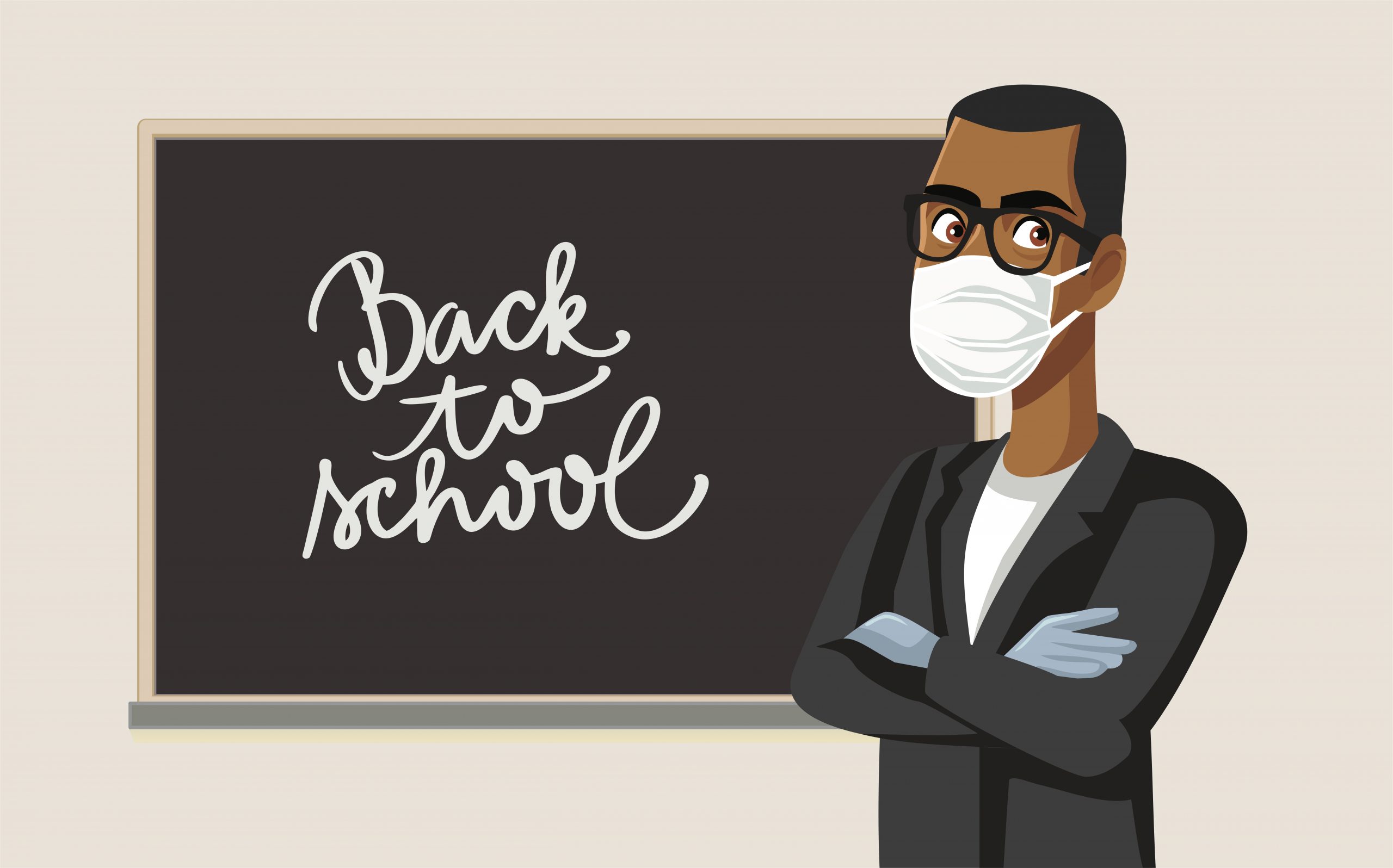Community
California Voters Give Schools, Teachers Top Grades in Year-End Survey
However, on most issues in the survey, Democrats and Republicans generally disagreed. One notable issue was whether schools should spend more time teaching about the causes and consequences of racism and inequality.

Despite perceptions of the public’s widespread unhappiness with the slow reopening of California’s schools last spring, most voters surveyed, including parents, gave the highest marks in a decade of polling to the state’s public schools in general and their schools in particular.
However, on most issues in the survey, Democrats and Republicans generally disagreed. One notable issue was whether schools should spend more time teaching about the causes and consequences of racism and inequality.
At the same time, they also expressed worry about the effects of the pandemic on children and said they would strongly support various measures to accelerate student learning, including hiring counselors and providing intensive tutoring and summer school.
The independent, nonpartisan research center PACE and the USC Rossier School of Education released their ninth annual poll on education on July 8. The survey firm Tulchin Research solicited views of 2,000 registered California voters representative of the state’s demographics and party affiliation, with an oversampling of 500 parents with children under 18 living at home. Surveys were conducted in English and Spanish.
Researchers chose May, with schools winding down after a partial return to in-person instruction, because it enabled participants to reflect on the year and look ahead, said Heather Hough, PACE’s executive director.
Given widespread news reports showing anger and mistrust toward schools, Hough said she expected more criticism. Instead, a record 38% of voters overall and 53% of parents gave A or B grades to schools statewide; 51% of voters and 61% of parents gave A or B to their local public schools.
One of the researchers characterized this as “grading on a curve,” Hough said, giving credit to schools for the efforts they made during a difficult year.
The disparity was wide among voters by party, however, with 29% of Republicans giving schools statewide an A or B and 41% giving a D or F, compared with 47% of Democrats giving an A or B and only 17% giving schools statewide a D or F. The rest gave schools a C.
The majority of voters and parents gave A or B to teachers and superintendents, and 69% of parents said they would encourage a young person to become a teacher, an increase from 60% from the last poll, which was taken pre-pandemic, in January 2020.
Voters were presented a list of the potential areas of concern because of the pandemic’s impact on students and asked to rate them 1 to 10, with 10 being “very important.” Voters overall cited students falling behind academically as the most pressing issue, with the impact on English learners and special education students a close second. Parents cited the impact on emotional and mental health as No. 1, which was third for all voters.
Voters’ experiences during the pandemic varied significantly by income, and, to an extent, by race and ethnicity. Confirming what other surveys have indicated, lower-income families were the hardest hit: for families earning under $35,000 per year, 37% said their income worsened and 14% said it improved during the pandemic; for families earning more than $150,000, it was the opposite: 30% said their income had improved and 17% said it worsened.
Asked to describe their children’s educational experience during the pandemic, 58% of families earning under $75,000 said it had gotten worse, compared with 48% of families earning more than $150,000; 39% of those earning more than $150,000 said it had gotten better, compared with 26% of families earning less than $35,000.
Divided on race and politics
California voters reflected the tensions nationally on issues of race and politics, though they downplayed the divisions locally: 78% said the state has become more divided politically, and 70% said the state has become more divided on matters of race. But slightly fewer than half said those political and racial tensions had increased locally.
Asked if the problem of discrimination and violence based on racial and ethnic differences has gotten worse, 69% said it had statewide while 48% said it had locally; 64% of Black voters said the problem has worsened, compared with 46% of non-Black voters.
Voters were given a dozen educational issues and were asked to rank their importance, from 1 to 10 (very important). The top issue was reducing gun violence in schools, although the rate of incidents is small nationally and in California, with 65% of Democrats and 37% of Republicans ranking it very important.
The next four issues, all closely ranked, were making college more affordable, improving special education services, reducing the teacher shortage and supporting struggling schools.
More Democrats than Republicans designated the issues to be very important. On improving education funding, for example, 43% of Democrats ranked it very important, compared with 25% of Republicans. The one exception was improving school discipline; a third of Republicans ranked it very important, compared with a quarter of Democrats.
Asked whether more or less time should be spent on “grade-appropriate” lessons on racism and inequality, 39% of Democrats backed giving the issues much more time compared with 10% of Republicans, while 37% of Republicans and 3% of Democrats said there should be much less time.
“Many Californians support steps to acknowledge and address persistent inequities, in the curriculum and otherwise, but stark partisan differences portend ongoing conflict in the pursuit of these goals,” the authors of the poll concluded. Along with Hough, they were Julie Marsh, a professor of education policy at USC Rossier School of Education; Jeannie Myung, director of policy research at PACE; David Plank, a senior fellow at PACE, and Morgan Polikoff, an associate professor of education at the USC Rossier School of Education.
On other questions:
69% of voters support requiring COVID-19 vaccinations for school-age children, once approved by the FDA and medical exemptions are allowed; 43% strongly favor the idea. Strongest in support were Democrats, high-income earners and Asian American voters. Least supporting were Republicans, low-income earners and Black voters, although in all groups, there was a majority support.
71% of parents and 59% of all voters favored making online learning from home an option for all students in California public schools, even after the pandemic ends.
58% of voters, but only 49% of parents favor the resumption of standardized testing, but 43% of parents want testing either eliminated (18%) or reduced, such as once in elementary school and once in high school. (In spring 2020, the tests for most students were canceled, and in spring 2021, they were optional for districts.)
Activism
Oakland Post: Week of April 24 – 30, 2024
The printed Weekly Edition of the Oakland Post: Week of April 24 – 30, 2024

To enlarge your view of this issue, use the slider, magnifying glass icon or full page icon in the lower right corner of the browser window. ![]()
Alameda County
DA Pamela Price Stands by Mom Who Lost Son to Gun Violence in Oakland
Last week, The Post published a photo showing Alameda County District Attorney Pamela Price with Carol Jones, whose son, Patrick DeMarco Scott, was gunned down by an unknown assailant in 2018.

Publisher’s note: Last week, The Post published a photo showing Alameda County District Attorney Pamela Price with Carol Jones, whose son, Patrick DeMarco Scott, was gunned down by an unknown assailant in 2018. The photo was too small for readers to see where the women were and what they were doing. Here we show Price and Jones as they complete a walk in memory of Scott. For more information and to contribute, please contact Carol Jones at 510-978-5517 at morefoundation.help@gmail.com. Courtesy photo.
City Government
Vallejo Welcomes Interim City Manager Beverli Marshall
At Tuesday night’s Council meeting, the Vallejo City Council appointed Beverli Marshall as the interim city manager. Her tenure in the City Manager’s Office began today, Wednesday, April 10. Mayor Robert McConnell praised Marshall’s extensive background, noting her “wide breadth of experience in many areas that will assist the City and its citizens in understanding the complexity of the many issues that must be solved” in Vallejo.

Special to The Post
At Tuesday night’s Council meeting, the Vallejo City Council appointed Beverli Marshall as the interim city manager. Her tenure in the City Manager’s Office began today, Wednesday, April 10.
Mayor Robert McConnell praised Marshall’s extensive background, noting her “wide breadth of experience in many areas that will assist the City and its citizens in understanding the complexity of the many issues that must be solved” in Vallejo.
Current City Manager Michael Malone, whose official departure is slated for April 18, expressed his well wishes. “I wish the City of Vallejo and Interim City Manager Marshall all the best in moving forward on the progress we’ve made to improve service to residents.” Malone expressed his hope that the staff and Council will work closely with ICM Marshall to “ensure success and prosperity for the City.”
According to the Vallejo Sun, Malone stepped into the role of interim city manager in 2021 and became permanent in 2022. Previously, Malone served as the city’s water director and decided to retire from city service e at the end of his contract which is April 18.
“I hope the excellent work of City staff will continue for years to come in Vallejo,” he said. “However, recent developments have led me to this decision to announce my retirement.”
When Malone was appointed, Vallejo was awash in scandals involving the housing division and the police department. A third of the city’s jobs went unfilled during most of his tenure, making for a rocky road for getting things done, the Vallejo Sun reported.
At last night’s council meeting, McConnell explained the selection process, highlighting the council’s confidence in achieving positive outcomes through a collaborative effort, and said this afternoon, “The Council is confident that by working closely together, positive results will be obtained.”
While the search for a permanent city manager is ongoing, an announcement is expected in the coming months.
On behalf of the City Council, Mayor McConnell extended gratitude to the staff, citizen groups, and recruitment firm.
“The Council wishes to thank the staff, the citizens’ group, and the recruitment firm for their diligent work and careful consideration for the selection of what is possibly the most important decision a Council can make on behalf of the betterment of our City,” McConnell said.
The Vallejo Sun contributed to this report.
-

 Activism4 weeks ago
Activism4 weeks agoOakland Post: Week of March 27 – April 2, 2024
-

 #NNPA BlackPress4 weeks ago
#NNPA BlackPress4 weeks agoBeloved Actor and Activist Louis Cameron Gossett Jr. Dies at 87
-

 Community1 week ago
Community1 week agoFinancial Assistance Bill for Descendants of Enslaved Persons to Help Them Purchase, Own, or Maintain a Home
-

 Activism3 weeks ago
Activism3 weeks agoOakland Post: Week of April 3 – 6, 2024
-

 Business1 week ago
Business1 week agoV.P. Kamala Harris: Americans With Criminal Records Will Soon Be Eligible for SBA Loans
-

 Activism2 weeks ago
Activism2 weeks agoOakland Post: Week of April 10 – 16, 2024
-

 Community1 week ago
Community1 week agoAG Bonta Says Oakland School Leaders Should Comply with State Laws to Avoid ‘Disparate Harm’ When Closing or Merging Schools
-

 Community6 days ago
Community6 days agoOakland WNBA Player to be Inducted Into Hall of Fame



















































